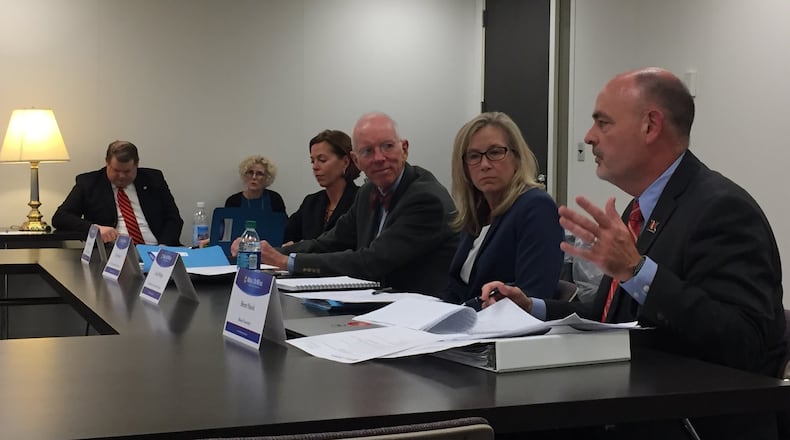"It's pretty much clear as mud sometimes," said LeeAnne Cornyn, director of children's programs for the attorney general's office.
Cornyn said the University of Dayton is one of only a few schools in the state that offers one-on-one financial counseling.
Most schools do not have the resources to offer individualized counseling, officials said. Miami University identifies students who are incurring some of the highest amounts of loan debt and offers individual help.
"We do it within pockets. With a staff of 20 it's not possible to hit all the students," said Brent Shock, Miami's assistant vice president of enrollment management and director of financial services.
Other schools typically rely on peer counseling or online financial advice for students.
Students who receive federal loans must complete online counseling.
"You really don't have to read it all, you can just click the arrows and go right through," said Cyan Blackwell, an Ohio State University student serving in the group.
Others in the group questioned how seriously students take online counseling.
"We often get dealt the 'nobody told me' card," said Faith Phillips, director of financial aid at Ohio State's Newark campus and president of the Ohio Association of Student Financial Aid Administrators.
One student Phillips worked with told her he blew through $4,000 in loans. The student failed his classes and now owes the university a refund of some of his financial aid, Phillips said.
"Put that in the hands of an 18-year-old that just stepped away from mom and dad for the first time, they do not know how to do that," Phillips said.
With the popularity of online banking and debit cards, Shock said he has met students who do not even know how to balance a checkbook.
With recently bumped-up submission dates for the Free Application for Federal Student Aid, officials are looking for a solution to the default rate and they "plan to dig in on it," said Dan Sadlier, a retired chair of the board of directors at Fifth Third Bank from Dayton who serves as chair of the advisory group.
The answer may be more financial education for students in high school, before they ever fill out a form for student aid, officials said.
“It amazes me what students don’t know when they get to college,” Shock said. “I think at the high school level some sort of course is needed.”
About the Author
